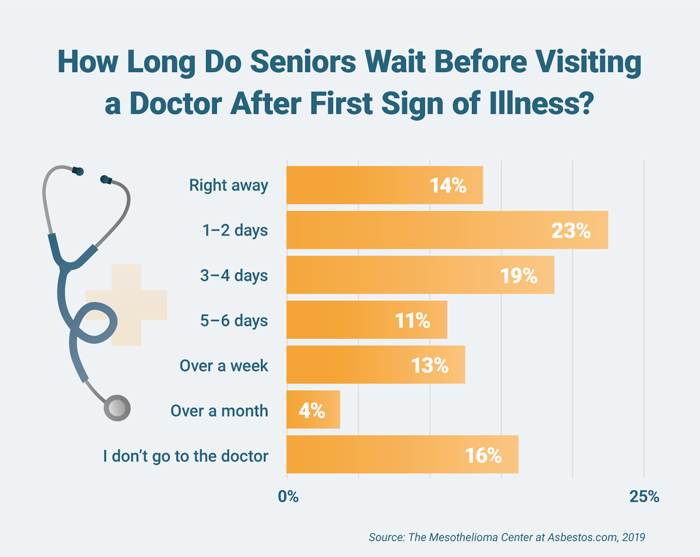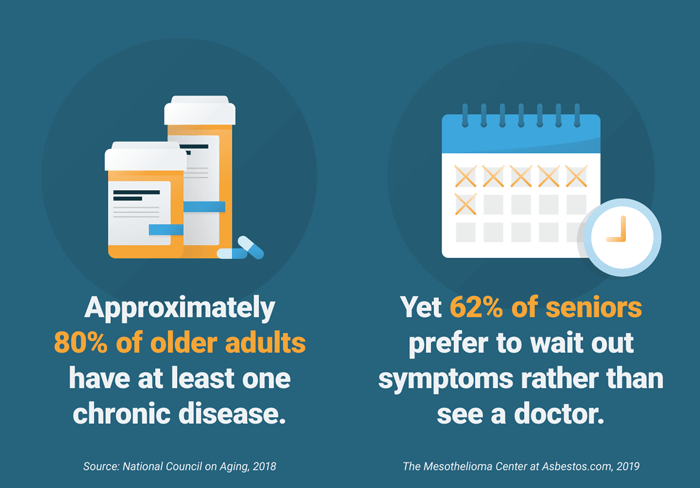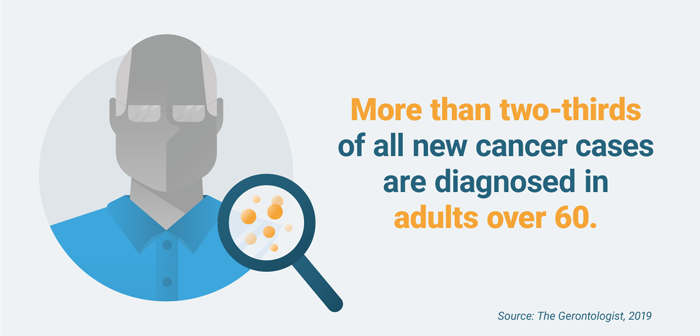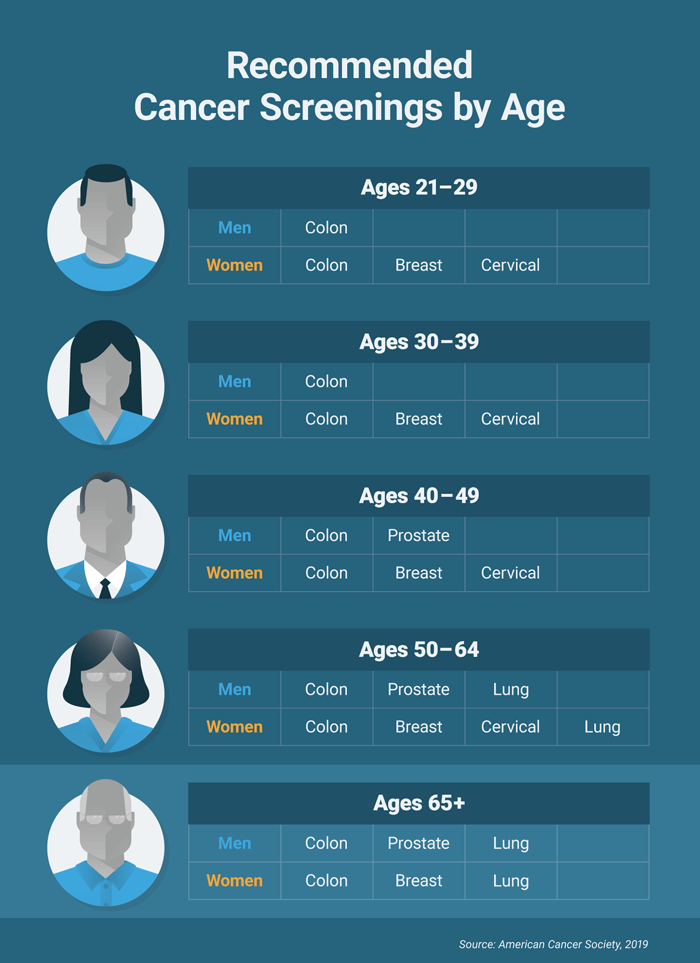Survey: Seniors Risk Serious Health Complications by Avoiding the Doctor
Written by Karen Selby, RN | Edited By Walter Pacheco
16% of Seniors Avoid the Doctor After Noticing Symptoms
The Mesothelioma Center at Asbestos.com surveyed 1,000 Americans over the age of 65 and found that 17% of them wait more than one week – and in some cases, more than a month – before visiting the doctor after noticing symptoms. An additional 16% avoid the doctor altogether, opting not to seek medical help.

Two-Thirds of Seniors Prefer Waiting for Symptoms to Disappear
In a second survey of 1,000 adults over the age of 65, respondents were asked why they delay visiting the doctor after first noticing symptoms. The most common answer: “I prefer to wait and see if they’ll go away.”
- Preference to self-diagnose
- Inability to pay a doctor
- Lack of time
- No transportation
- Fear of receiving bad news

Avoiding the Doctor Poses Serious Health Risks
While the thought of a doctor visit may cause feelings of dread and anxiety, regular checkups are necessary to address common health concerns among seniors, including:
- Chronic illnesses: Heart disease, cancer, stroke and diabetes
- Physical injuries: Broken hips
- Mental health issues: Depression
- Cognitive health conditions: Dementia and Alzheimer’s disease
- Sensory impairments: Cataracts and loss of hearing
- Aging issues: Diminished bladder control and constipation

Being aware of the elevated risks of these conditions as you age will help you make more informed health care decisions and healthier lifestyle choices. Ignoring signs of illness may only worsen a condition, cause other health complications and call for unnecessary medications.
Early diagnosis of health complications, such as cancer and heart disease, may improve survival and life expectancy among seniors. Some serious health conditions may not produce symptoms. This is why it’s important to schedule regular screenings, especially as you age. The types of tests and frequency may depend on risk factors such as family history or genetic disorders. Ask your doctor about which tests you’ll need and how often you should receive them.

Screenings save lives. For example, cases of breast cancer deaths steadily increased by 0.4% every year between 1975 and 1989. However, according to the American Cancer Society, once mammograms became routine, breast cancer deaths plummeted by 39%. Women should get a yearly mammogram starting at age 45 to increase the likelihood of detecting breast cancer early and successfully treating it.
Colon cancer is another example of the importance of regular screenings. The American Cancer Society reports that colorectal cancer is the second-leading cause of death among men and women and suggests people over the age of 50 receive a colonoscopy every 10 years. However, according to the organization’s most recent report available, only 60% actually do so.
Mesothelioma, or “the asbestos cancer,” is a third example of the importance of screening. The disease has a latency period of 20-60 years, which means you won’t develop symptoms until decades after exposure to asbestos. The unusually long latency period places older adults at a higher risk of developing mesothelioma.
If you worked with asbestos or asbestos products, or lived with someone who was regularly exposed to asbestos, you should request a cancer screening from your doctor or a doctor specializing in mesothelioma. Early mesothelioma detection can improve the prognosis and life expectancy of those affected.
Quality health care becomes increasingly important as you age. Don’t ignore early warning signs, even if they’re small. No matter the diagnosis, you’ll be glad you took care of it right away.
Methodology:
This study consisted of two survey questions conducted using Google Surveys. The sample consisted of no less than 1,000 completed responses per question. Post-stratification weighting has been applied to ensure an accurate and reliable representation of the target population of American men and women 65 and older. The surveys ran in December 2019.







